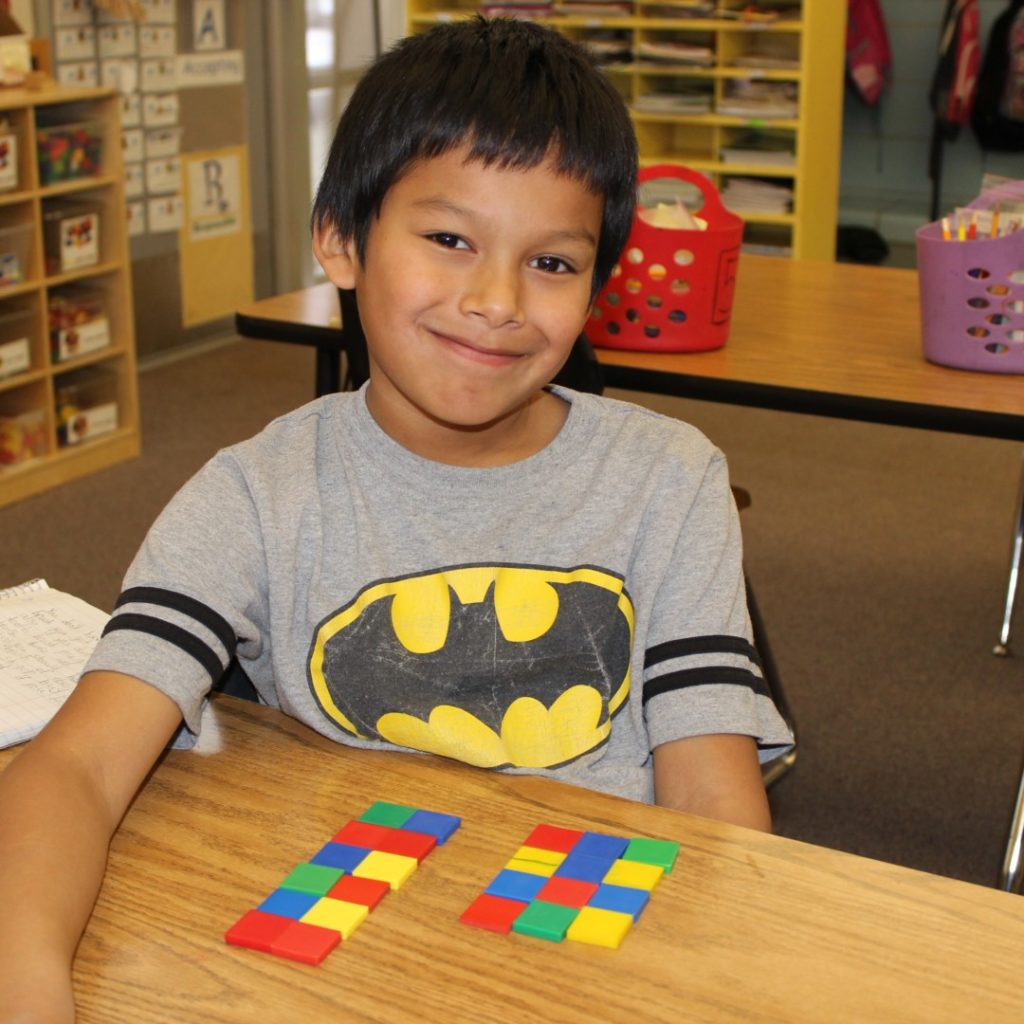Santi had some cookies. His mom baked him 9 more. Now he has 16. How many cookies did Santi have to start?
I recently watched some first grade mathematicians share their problem solving around this question. After some independent work time, the group gathered on the rug, and Betsy came to the document camera to show her work. She read aloud her carefully crafted paragraph explaining how she had started, “I thought of 10 + 9, but that equals nineteen. Then I started counting down, and I landed at 16, and that is how I got my equation, 6 + 9 = 16.”
Another student had just shared his thinking, that 7 + 9 = 16.
Their teacher turned to the group, “Let’s talk about this. She used a strategy I didn’t see many people use. What do you notice about Betsy’s thinking? Do you have questions for Betsy?”
“It was good.”
“Tell me about Betsy’s equation. What do you notice?”
“It’s a different equation from our equations.”
“Some people think it’s six, and some people think it’s seven,” the teacher summarized.
Another student began to explain her own idea, but did not get very far before a light bulb went off above Betsy’s head, “I changed my thinking!” She said, “Now I think it’s seven, too.”
Betsy is a problem solver. She solved a problem one way, received some feedback from her peers, and then solved it again. She wasn’t ashamed or upset; she changed her mind right there in front of the whole universe of her first grade class, and everyone celebrated. What does it take to empower problem solvers like Betsy?
Four T’s for Problem Solving
Task
In order to problem solve, everyone needs a task worth solving, something cognitively demanding and interesting. For these first graders, it was cookies. For your students, it might be enlarging the volume of a water tank to supply a thirsty village or writing to the mayor about bicycle lane regulations. Give students something worthy to chew on.
Tools
As one grapples to make sense of a new problem, a strategy may not immediately be apparent. Our students need banks of ideas for how to tackle new territory — a chart of thinking strategies, a list of Common Core Standards for Math Practice, as well as rehearsal of and models for each. Offer learners opportunities to explore a range of tools and to learn which work for them.
Time
Thinking takes time. We can learn so much from one rich, deep task. Allow yourself and you class time to slow down, to think, talk, model, record, share, write, revise. With each iteration, ideas grow. Understanding of important ideas is worth our patience.
Trust
Young people possess untapped resources of ingenuity. Once we offer learners tools and models, we can step back, zip our lips, and allow them the time to wrestle with a cognitive challenge. In this way, we demonstrate our faith in their thinking. We communicate that we really do expect them to be wonderful.
Thank goodness Betsy’s teacher did not jump in to correct her this morning. Instead, Betsy was trusted to use her tools and find her way, and she did. When we empower learners as problem solvers, we support their identities as thinkers and agents in their own lives. We need them.

